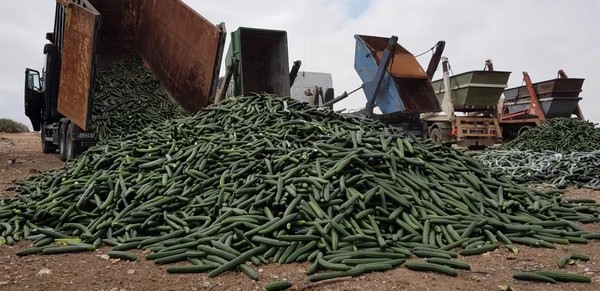After a meeting held by videoconference, representatives of ASAJA, COAG, COEXPHAL, Cooperativas Agro-Alimentarias, UPA, and ECOHAL of Almería and Granada have decided to withdraw 30% of the marketable cucumber production to try to stop the price crisis that the product has been suffering for several weeks.
The representatives of the sector's production and marketing organizations have also denounced the lack of protection of the Spanish and European productions against the unfair competition from the productions from third countries due to the passivity of the European authorities.
Last week, the agricultural and marketing organizations of Granada and Almería withdrew 2,340,000 kilos of cucumbers with the idea that, if there was no improvement, stricter measures could be implemented to achieve greater market stability. The issue is that high temperatures have led to overproduction across Europe, and this doesn't look like it's going to change until the last week of November.

The provincial representatives of ASAJA, COAG, UPA, COEXPHAL, Cooperativas Agro-Alimentarias and ECOHAL de Granada and Almería have once again mentioned the urgent need to control the agreements with third countries such as Morocco, and guarantee the transparency of imports, quotas and border controls.
Lastly, the sector insisted on the fact that the withdrawal mechanisms must be improved, so that the entire sector can benefit from them. This is another of the demands made a year ago and on which no progress has been made, even though it is essential, given the situation.
At the end of last year, the Spanish fruit and vegetable sector held demonstrations with four points on the agenda: making governments aware of the structural crisis that the sector is experiencing, ending unfair competition from third countries, setting up a specific crisis management fund for the entire fruit and vegetable sector and the urgent design of mechanisms via European regulations to reduce the power of sales chains / supermarkets in the price negotiations. These four demands are far from being met today exactly one year after the massive November protests of 2019.

